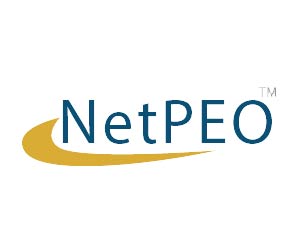A professional employer organization (PEO) handles your company’s payroll through the co-employment relationship. PEOs have accounting professionals who can distribute checks, monitor work time, and keep the company’s accounting books current with expenses and income.
Entrepreneurs start companies because they are passionate about their industries and do not want to spend hours poring over complicated paperwork or learning business accounting. PEO companies can address these issues by providing accounting services in various ways.
What is PEO Payroll?
Payroll through a PEO refers to payroll processing and management provided through a Professional Employer Organization under a co-employment model.
In this arrangement, your business retains full control over daily business operations, while the PEO becomes the “employer of record” for tax and compliance purposes. This means the PEO handles tasks like:
-
Payroll calculations and processing
-
Direct deposits and pay stubs
-
Payroll tax filings (federal, state, and local)
-
Year-end forms like W-2s and 1099s
-
Wage garnishments and deductions
-
Compliance with labor and tax regulations
Unlike traditional payroll providers, a PEO integrates payroll with HR tasks, hr management, hr services, and benefits plans, offering a more complete solution for growing businesses.
Benefits of PEO Payroll for Businesses
Outsourcing payroll to a PEO isn’t just about convenience—it’s about transforming how your human resource functions. Here are the top benefits:
1. Save Time and Reduce Administrative Burden
Payroll can take up to 20% of a small business owner’s time. With Outsourced payroll, that time is cut dramatically, freeing you to focus on revenue-generating tasks.
2. Stay Compliant with Payroll Tax Laws
Tax regulations change constantly. A PEO ensures accuracy with:
-
Federal payroll taxes
-
State and local withholdings
-
Unemployment insurance taxes
-
Wage and hour compliance
3. Reduce Risk of Payroll Mistakes
Errors in payroll can lead to IRS penalties and unhappy employees. Outsourced payroll minimizes mistakes with automated systems and expert oversight.
4. Offer Better Benefits Alongside Payroll
Because PEOs pool employees from multiple businesses, you get access to health insurance, retirement plans, and other benefits plans at competitive rates.
5. Scale Easily as You Grow
Adding new employees? Expanding into new states? Outsourced payroll grows with you, ensuring compliance and smooth transitions.
PEO Payroll vs. Payroll Providers (ADP, Paychex, Gusto, etc.)
Many business owners wonder: “Why not just use a payroll provider?”
Here’s the difference:
| Feature | Payroll Provider (ADP, Gusto, etc.) | PEO Payroll Services |
|---|---|---|
| Payroll Processing | ✔ | ✔ |
| Tax Filing & Compliance | ✔ | ✔ |
| Employee Benefits Access | ✘ | ✔ |
| HR Services & Compliance | ✘ | ✔ |
| Workers’ Comp & Risk Mgmt. | ✘ | ✔ |
| Employer of Record (Co-Employment) | ✘ | ✔ |
Bottom line: Payroll providers process payments, but Outsourced payroll offers a complete HR + compliance solution. Organizations like Professional Employer Organizations NAPEO often highlight how payroll, compliance, and employee benefits work together seamlessly under the PEO model.
Co-Employment and Payroll
Working with a PEO company creates a co-employment arrangement whereby the PEO and your company share legal responsibilities for professional tasks like accounting. PEOs work with many businesses and provide a central labor pool of professionals you can call on to handle your company’s payroll and accounting needs.
While allowing another entity to become a co-employer of your employees may sound risky to a business owner, the co-employment relationship does not involve elevated risk or liability.
On the contrary, the relationship is a legal setup allowing the PEO to provide necessary services to lower a client company’s overall risk profile. Here is how co-employment works.
The Role of the Business Owner
In the co-employment relationship, the business owner retains control over the company. They have the final say regarding hiring and firing decisions, dictate the direction of their business and corporate culture, and are still the primary employer of their employees. They do not lose any rights or privileges through co-employment.
The Role of the PEO
The PEO can consider the client business owner’s employees as part of their employee pool. This allows the PEO to handle sensitive information and perform services reserved for employers in most situations, such as payroll management and accounting.
In all matters, the PEO respects the business owner’s authority and defers to their wishes regarding hiring, firing, and the direction of the company.
Industries That Benefit Most from Payroll through a PEO
While almost any business can benefit from Payroll through a PEO, some industries see major advantages:
-
Startups → Scale without worrying about payroll errors.
-
Healthcare → Stay compliant with complex labor and wage rules.
-
Construction → Manage multi-state payroll and workers compensation requirements.
-
Technology → Attract top talent with competitive employee benefits.
-
Retail & Franchises → Simplify payroll across multiple locations.
No matter your industry, NetPEO can match you with a payroll partner that understands your unique needs. This is especially helpful for small and mid sized business owners who are partnering with a PEO for the first time.
What Are the Tax Implications of Using a PEO for Payroll?
Using a PEO to handle your company’s accounting and payroll can have significant tax implications for your business:
- Tax Liability: In most cases, the PEO becomes the employer of record for tax purposes. This means they assume responsibility for paying employment taxes, filing returns, and dealing with tax agencies.
- Tax Savings: PEOs often have economies of scale that can reduce tax preparation and filing costs. These savings can be passed on to your business.
- Accuracy and Compliance: PEOs specialize in payroll and tax regulations, which can lead to fewer errors and reduced risk of penalties or audits.
- Multiple State Taxes: If you have employees in multiple states, a PEO can more efficiently manage the complexities of different state tax requirements than most small businesses can in-house.
- Tax Credits: PEOs can help identify and secure tax credits your business might be eligible for, such as Work Opportunity Tax Credits (WOTC).
- Year-End Reporting: PEOs handle W-2 preparation, distribution, and other year-end tax reporting requirements.
How Does a PEO Ensure Payroll Compliance Across Different States?
Managing payroll across multiple states can be complex, but PEOs have systems in place to ensure compliance for multi-state businesses:
- Regulatory Proficiency: PEOs employ experts who stay up-to-date with changing regulations in all 50 states, ensuring your business remains compliant.
- State-Specific Processing: PEOs use sophisticated software to process payroll according to each state’s specific requirements, including tax withholding, overtime rules, and paid leave laws.
- Multi-State Reporting: They handle all necessary state-specific payroll tax filings and reports, reducing your administrative burden.
- Unemployment Insurance: PEOs manage unemployment insurance payments and claims across different states, which can be particularly complex for multi-state employers.
- Worker Classification: They ensure proper classification of employees vs. contractors across different state laws, reducing misclassification risks.
- Wage and Hour Compliance: PEOs stay current with minimum wage laws, overtime regulations, and meal and rest break requirements that vary by state.
- New Hire Reporting: They handle state-specific new hire reporting requirements, ensuring timely compliance as your workforce grows and changes.
By leveraging a PEO’s knowledge and systems, you can confidently expand your business across state lines without worrying about missing crucial compliance requirements.
What Reporting and Analytics Can I Expect From a PEO’s Payroll Services?
Accounting is more than filling out tax paperwork and paying employees on time. It’s also about giving business owners the financial knowledge necessary to make business decisions. PEOs offer comprehensive reporting and analytics capabilities to give you insights into your payroll and workforce:
- Standard Payroll Reports: These include detailed payroll registers, tax liability reports, labor distribution reports, and department summaries.
- Customizable Reports: Many PEOs allow you to create custom reports tailored to your specific business needs.
- Real-Time Data Access: Most PEOs provide online portals to access up-to-date payroll data and reports anytime.
- Workforce Analytics: Beyond basic payroll, PEOs often offer insights into workforce trends, including:
- Employee turnover rates
- Labor costs as a percentage of revenue
- Overtime trends
- Paid time off usage
- Benchmarking: Some PEOs provide benchmarking reports, allowing you to compare your payroll metrics against industry standards.
- Forecasting Tools: Advanced PEOs may offer payroll forecasting tools to help with budgeting and financial planning.
These reporting and analytics capabilities can provide valuable insights to inform business decisions, improve efficiency, and ensure organizational compliance.
Have a Skilled PEO Handle Your Company’s Payroll and Accounting Today
If you are a small business owner looking for a PEO to help with the seemingly endless number-crunching and paperwork of payroll management, contact NetPEO today. Our nationwide network of PEOs has two centuries of combined industry experience, so you know that you will find a PEO that is right for your business.
NetPEO offers a FREE, no-obligation quote on our services. Based on an extensive profile of your needs, we match you with several in-network PEOs and allow you to select the right PEO to handle your company’s payroll. Call us today to get a free quote.



